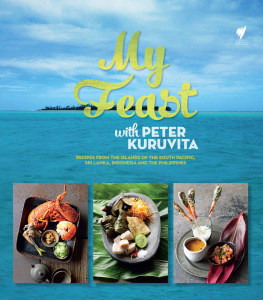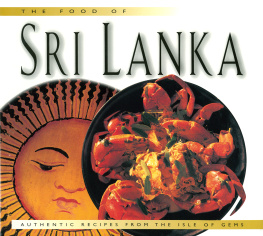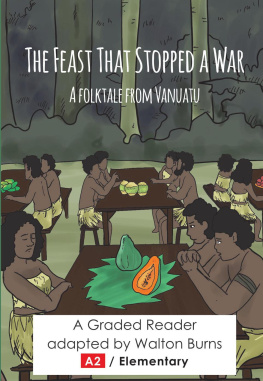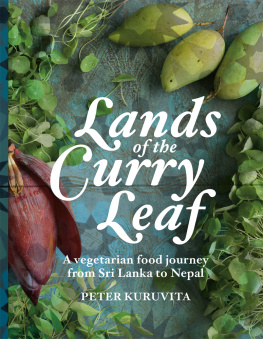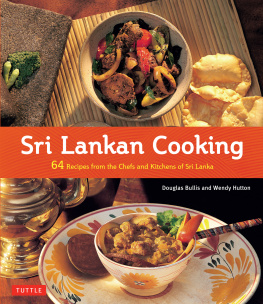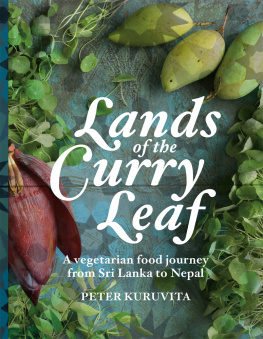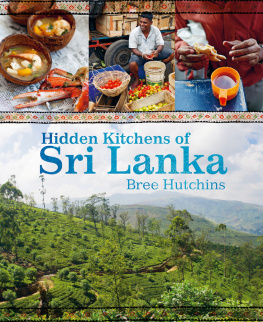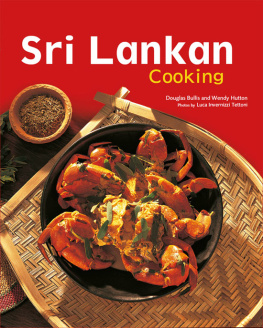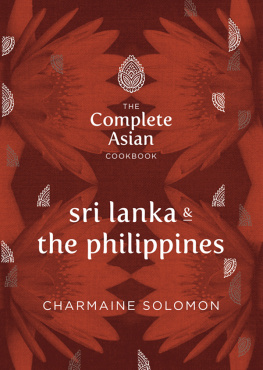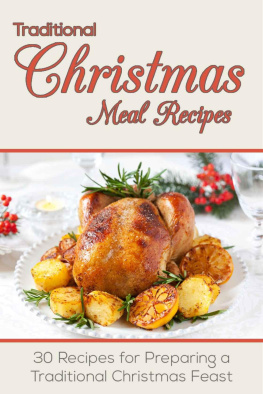DEDICATION
This book is dedicated to the millions of people who live their lives simply, surviving day to day, uncertain of where their next dollar or job might be coming from. They are passionate and caring people who, even though they may not have much, would give you the shirts off their backs and their last handfuls of rice if you asked them.
We can learn from these people. Despite their hardships, they demonstrate that a peaceful and simple life can be very fulfilling.
Contents
As a kid growing up in Sri Lanka, food was a very important part of life. You not only knew how good food tasted but you also knew what it was good for. For example, if you were at the market and asked an older person what a certain vegetable was, you would first be told of its Ayurvedic properties, before being told how it should be prepared.
Things changed very dramatically for me in 1975 when we immigrated to Australia. I was eleven years old. Leaving our 250-year-old ancestral home in Dehiwala, Colombo, and all our relatives and comforts, we arrived in a new land, a harsh land where our traditions meant nothing and we were nobody. We arrived not long after the White Australia policy had ended and lived in the then wild western suburbs of Sydney. It was a shock to the system. Add to that a very healthy serve of racism not only towards me but my parents an Austrian mother and Sri Lankan father and you had a child who hated the world. I fought it and anyone that dealt it out with vigour. My love of food and hours spent with my grandmother and aunties in their kitchen back in Sri Lanka were suppressed and survival mode kicked in.
Cooking never occurred to me again until my dad said, Get out of my car and go and ask for a job. I was sixteen years and nine months old. School and I did not agree with each other; a fact that did not sit well with my dad, a very proud engineer, who already had one son at university studying science and another on his way to being an engineer and pilot. I was a wayward and rebellious middle son. I was never going to fit the mould of my siblings and finally got my way and left school.
Within a week of leaving school, I was constantly being asked what I wanted to do for work. I really did not know. I was never scared of work and by sixteen I could pull a car to bits and put it back together with my eyes closed. I had worked with my dad doing all the renovations about our house so I knew the basics of all the trades; building, carpentry, electrical and plumbing, which would serve me well for the rest of my life and save me thousands in dollars, but I did not want to take up any of those trades as a career.
So there I was on the main street of Mortdale, where we then lived in suburban Sydney, looking at my dad who had just ordered me into The Crabapple restaurant to ask for a job.
This was not a random place that Dad chose for me to begin my working career. Part of the deal with my leaving school was that I had to complete my school certificate but to do that I had to complete an elective and the only options available were cookery or needlework. I was okay with a needle and thread, but there was no way I was going to take up a needlework class. I liked the girls in the cooking class better and opted for cookery instead. I loved it and topped the class. But it didnt yet click that cookery was to be my path.
I got out of the car and looked back at Dad and thought to myself, What is he thinking? As I stepped onto the threshold of the little shop front, my first memory of a restaurant was formed the smell of a restaurant that has slept for the night, the lingering smell of oil, garlic and seafood still hanging in the air. Those smells are now very familiar and as a restaurant warms up and the chefs start cooking, the smells freshen and life is again breathed back into the building.
I walked in and a healthy looking young chef with a glint in his eye called me into his kitchen. His name was Scott Mylrea and he would become my mentor in many ways. Calm, friendly and knowledgeable, he took me for who I was and taught me the basics of cookery. I started my life in the culinary world that night. I was cooking!
It was like I had rewound five years and was in the loving embrace of my Sri Lankan family, where food was paramount and how you cooked reflected on your whole family.
I was very lucky and am thankful to my dad for forcing me into that restaurant, and to the Mylrea family for taking me in. I was a natural. I picked things up immediately, and had worked my way up to cooking mains in only three months. I was so happy for the first time in a very long time. I was working hard, had no interaction with anyone from my schooling life and worked anti-social hours. I was in heaven. I had found my passion.
The next few years flew by, but I knew that this job could be my passport to the world. I realised that with a bit of passion and flexibility I could travel anywhere, do anything and achieve any goal I wanted. The recipe was easy: lots of hard work, a little bit of luck, and a tonne of grim determination. None of those attributes were foreign to me.
So I formed my plans sous chef as soon as possible, head chef as young as I could, executive chef in a five-star hotel, lots of travel, and work in as many countries as I could. But most of all, live a full and exciting life.
That was thirty-three years ago, and I am still having adventures, cooking and travelling which takes me to the adventure I want to share with you in this book: my islands journey.
As this book is loosely formed around my two television shows, My Sri Lanka and Island Feast, I will give you a quick recount of how it all came about. I was approached by a young producer called Henry Motteram who wanted to produce some online video content for the website of our Flying Fish restaurant in Sydney. We talked lots and got to know each other quite well, and then Henry left the company and launched his own production company.
Twenty-three years prior to that, when I was the head chef of a big harbourside restaurant, I met Merrill J Fernando, founder and chairman of Dilmah tea, . Mr Fernando was in Australia to launch his company, Dilmah, and introduce to Australia pure Ceylon tea unblended, single-estate tea picked and packed at the source; something that Dilmah still leads the world of tea in. Over the years we kept in touch and I started to get more involved in the Dilmah story and the gastronomical marriage of tea and food. One day I got a message that Dilmah was to run a program called The Chef and the Tea Maker in which eight chefs from Australia would be taken to Sri Lanka to be introduced to tea gastronomy. I was asked to assemble the chefs, a photographer and a film crew to record this unique experience. I asked Henry to submit a quote, and his new production company, The Precinct Studios, was awarded the job.
While we were in Sri Lanka, a country still in the grip of a terrible civil war, Henry and I saw the potential to do a television series about the country and its food. All we needed was a show reel and a television station to pick it up. I had just finished my first cookbook, Serendip My Sri Lankan Kitchen, and thought it would be easy. So with show reel and book in hand, Henry made many appointments and we visited various buyers and television stations. There was lots of interest but no bites. Two years after we had come up with the idea, it looked like it was about to become a reality. Erik Dwyer, commissioning editor of SBS, had built up SBS as Australias premier food channel, with a diverse and brilliant range of chefs on show, and he gave us the go ahead! We were honoured to be accepted. We were going to make a TV show!

